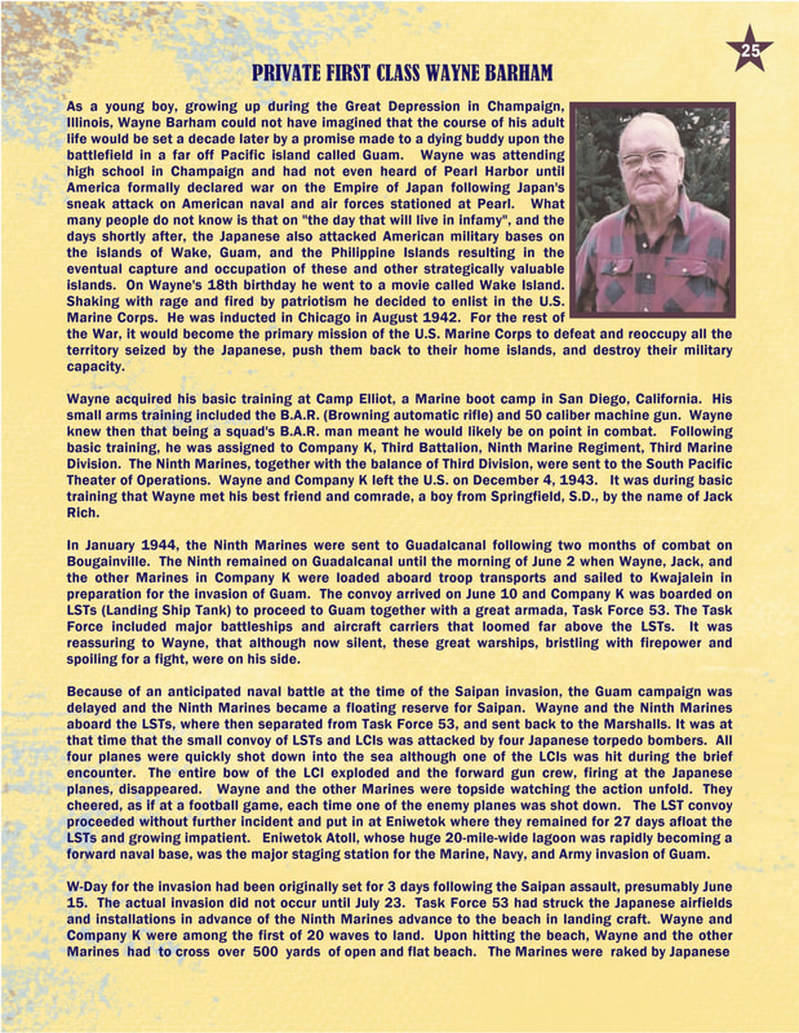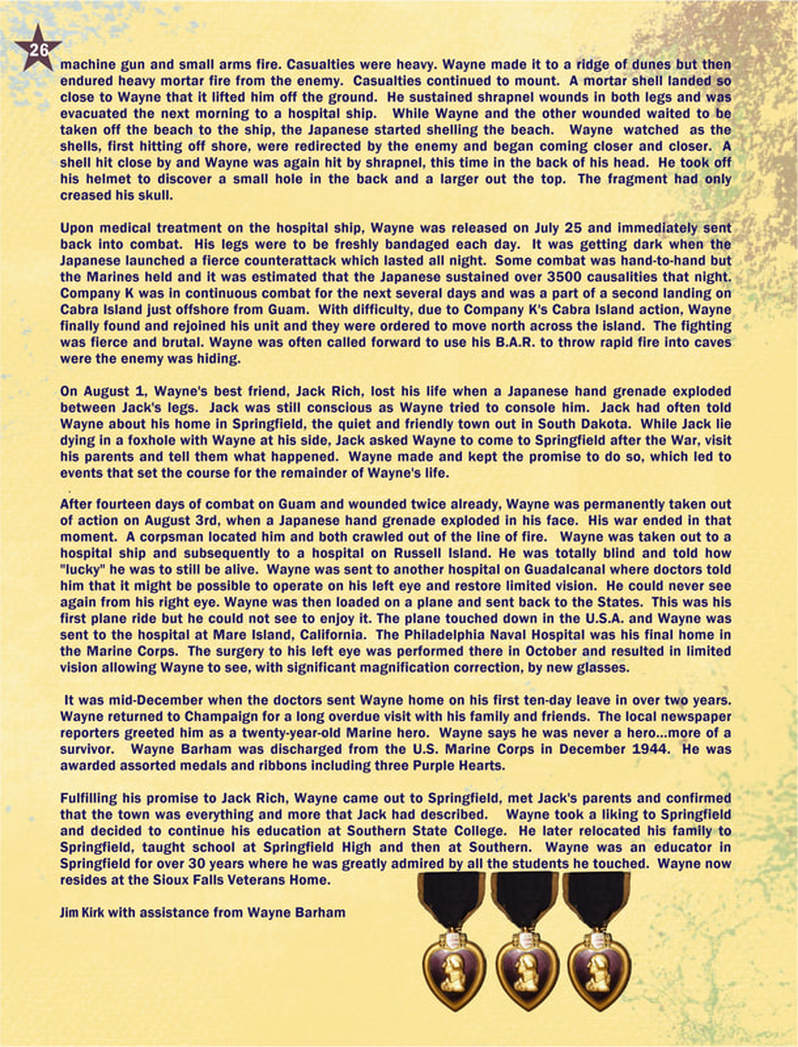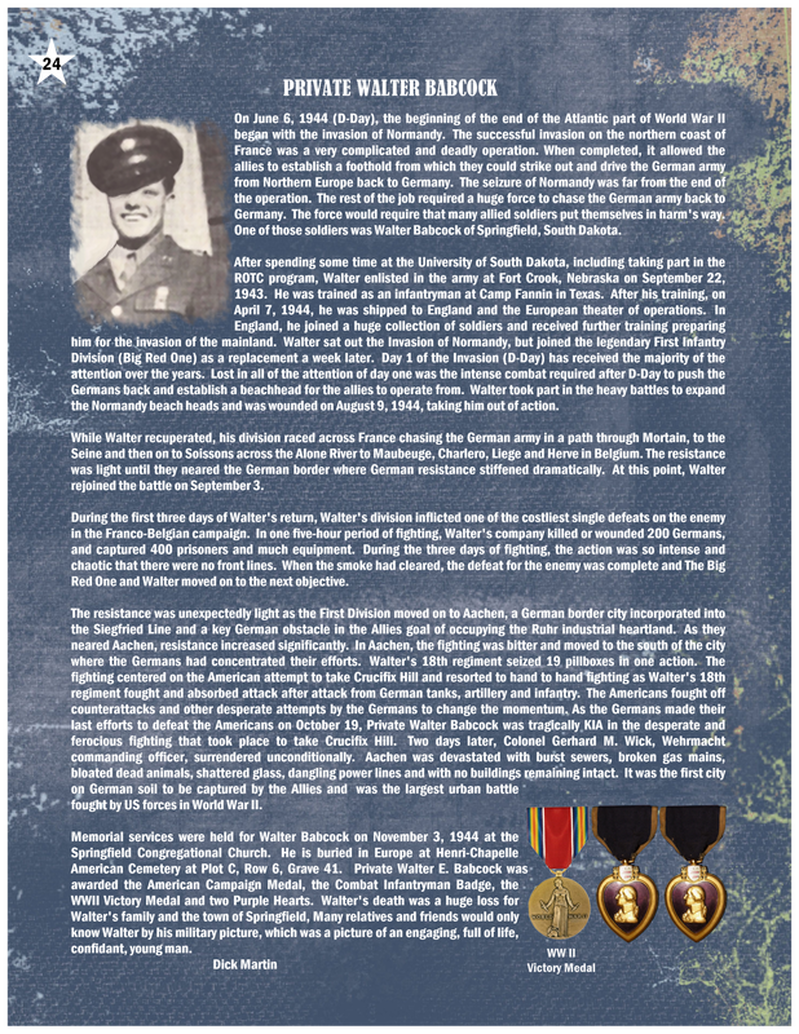|
By Dick Martin 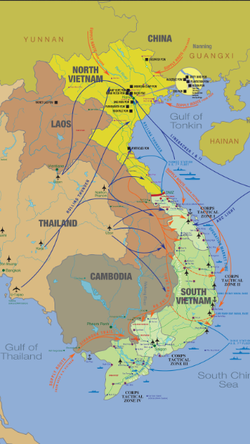 Today is a day to honor all of those soldiers who have made the ultimate sacrifice. All of those veterans are special and have been duly honored over the years. I have spent hours writing their stories and honoring them as best I could. About 15 years ago, I was talking to a Springfield local, Bob Coleman, about the different wars, and he talked about the Korean War as his war. He did not mean his own personal war, but his generation’s war. For my generation, it was the Vietnam War. It was an ambiguous war that hung over the heads of my generation during our youth. Without forgetting any of those from all wars who have given their lives, today, I would like to pay a special tribute to the Vietnam veterans who gave their lives in service to our country and to all those who answered the call and served in the controversial war in Southeast Asia. Those who spent significant time in the bush can astound us with the personal measures they had to take to survive and function in the hellish weather and terrain conditions they encountered in Vietnam. Some came home to verbal and physical abuse and all came home to indifference and lack of gratitude from the American public for their service. Most have probably long ago closed the book on the Vietnam War. I have never been able to do that. Today, for just a few minutes, so that we can properly appreciate and honor our Vietnam veterans, I would like to ask you to reopen that book and let me take you back to the situation in the world at that time, and our response to it. At that time, I had no clue about American foreign policy, so my opinion was knee-jerk patriotism. I was not obsessed with the war but it was always at the back of my mind as I read history of the war and what lead us to get involved. Gradually, over about 30 years of research, I was able to draw some conclusions. Contrary to what the general consensus is, I learned there were very good reasons why we got involved. I think my conclusions stand up to scrutiny. However, as you recall, there was plenty of controversy back then, so don’t be surprised if you disagree with me. The Vietnam War took place long ago in a far-off land. More than any other war, the Vietnam War was questioned as to whether or not it was justified. At that time, except for believing Communism to be bad, I had no idea what the prevailing thinking was, what it was based on, and why we got involved. After years of reading plenty about that era and the times leading up to it, I determined that the decisions to get us involved were based on logical and rational assumptions arrived at from easily observable actions and statements from the Communist world. Unfortunately, despite a plethora of evidence to validate those assumptions leading up to the war, as the war progressed and in subsequent years, they proved to be false, giving rise to the argument that our involvement in Vietnam was a costly mistake. To be specific, I see two main assumptions that drove us to our involvement in Southeast Asia:
In short, what we were looking at was an aggressive Communist North threatening the non-communist South lead by a leader indoctrinated in the Communist ideology bent on spreading throughout the world, or so we thought. Consequently, US policy was solidly committed to stopping the spread of Communism as evidenced by the United States’ participation in preventive measures such as the following:
In order to avoid involvement in Vietnam when the Communist threat developed there in the 1950s and 1960s, the decision makers would have had to ignore the well-justified assumptions that Communism was monolithic with the goal of taking over the world, and that Ho Chi Minh had substantial ties to Communism. In addition, they would have had to ignore the Truman Doctrine, violate the SEATO treaty, and blow off the 37,000 Americans killed in Korea successfully stopping the spread of Communism there. With all of that making up the prevailing thinking, we were committed to enforcing the Truman Doctrine, honoring our membership in SEATO and employing the methods that worked in Korea. The loss in credibility, sustained by the United States by abdicating those responsibilities, would have had far-reaching and long-lasting effects on its standing and foreign policy in the world. After the war, the validity of the assumptions began to fade. Ultimately, Ho Chi Minh proved he was a nationalist first, and a Communist a distant second. Stalin’s death ended any thoughts of a monolithic Communism taking over the world. Mao used that opportunity to break with Khruschev and the USSR resulting in China’s dangerous confrontations in competition with the USSR and backing the opposite side in regional wars involving client states of the USSR and China. With both of our assumptions losing steam, Vietnam, today, is, in many respects, better than we could have hoped for and certainly no monolithic threat to the world. Three years ago, I toured Vietnam and was overwhelmed by the peaceful hustle and bustle of free enterprise thriving everywhere. Adam Smith and Milton Friedman, noted free enterprise economists, would be very happy with the strides the country has made since the war. For all of those who have examined Communism and Ho Chi Minh after the war and discovered Communism far from monolithic and Ho Chi Minh mainly a nationalist rather than Communist; and therefore, boldly conclude that our involvement in the Vietnam War unnecessary, I would say “Hold the Phone.” That is not how it works. You don’t get to make decisions based on conditions that appear years later. You have to make them based on the current situation. Our military is a very important leg of our foreign policy. It has no value if it has no legitimacy. Its legitimacy comes from its professionalism, and the men and women who make up its ranks. Due to the dedication and service of those who served in Vietnam, our military has been able to maintain its legitimacy and it continues to do so today as a supremely important leg of our foreign policy. With those thoughts as a backdrop, I would like to give a special salute to all of those who made the ultimate sacrifice or served in Southeast Asia and were so important in maintaining the legitimacy of the military leg of our foreign policy. For the rest of the Springfield Veterans who served or gave their lives for our country, I salute them too and will do my best to continue to recognize them by telling their story. Finally, I would like to say how proud I am of all of the Springfield Veterans who served their country no matter what war they served in.
1 Comment
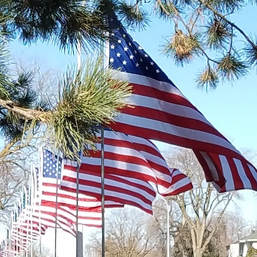 Two weeks ago we published the Memorial Day address given by Lawrence Namminga, Junior a number of years ago. This week, as we celebrate Veteran's Day, we are publishing Daryl Heusinkveld’s Memorial Day address of a few years ago. The messages in the two addresses never get old and are worth hearing again. Consequently, a couple of weeks ago, we republished Lawrence’s Memorial Day address and this week we are publishing Daryl’s Memorial Day address. Neither claim to be great speakers, but as you can see, they both deliver profound messages. Laura Martin We would like to publish more Memorial Day addresses if anyone has access to any. They don’t have to be Memorial Day addresses. They can be your ideas or messages appropriate to Memorial Day. Submitted by Daryl Heusinkveld
It wasn't until I had a son in harm's way, that I realized what my family went through while I was in the military and in Southeast Asia. My Dad never wanted to be away from home. Yet, my parents (Garret and Edith) left town and traveled to places they had never been to before. I thought, at the time, "This is strange, but it is good that they are finally getting out a little." I now realize that they couldn't take it anymore and had to get away. The news was TOO much. I was 23 years old and "bullet proof." They worried way more than I did. (I am sure that Don Irish who happened to be in Southeast Asia with me had similar feelings.) As parents and family of a military member, you hang on to every word in the news and in the papers. When you hear of some bad news, there is no doubt in your mind that it's your kid, until you are reassured otherwise. Communication has improved from WWI, WW II and Vietnam. In those days, parents would wait for weeks or months no knowing. Now, email and cell phones help us stay informed, but still we are often left wondering; as not all information can be shared as security could be compromised. Sometimes, there are things that are just as well not known. Our son Mark, an F-16 pilot, was flying in Southwest Asia. He has never been and still isn't very forthcoming with what he is doing. I had a friend in the Air Force Reserves who I pressed for information. He investigated for me and found that Mark was flying from Kuwait to Afghanistan via the Persian Gulf and Pakistan. It was 11 hours of flying non-stop with in-air refueling every hour. All this in a single seat, single engine, F-16 fighter over very unfriendly territory. I didn't sleep well after hearing this information, and I didn't tell his mother any of this until he was home safe. Often people, who don't have close friends or family in the military, don't realize the lifelong impact of the sacrifices made. I often think of my pilot training classmate Jim Herrick from Panora, IA. He was flying in bad weather and flew into the side of a mountain in Northern Laos. For political reasons, he was declared missing in action (MIA). I talked to his brother last August. Now, over forty years later, he still has hope that his brother is still alive. I bring up this story only to show how the lives of his whole family are still affected. Six of the guys from my pilot training class never came home from Southeast Asia. Their families still suffer. I hope that we will remember how these people sacrificed and why their sacrifices are necessary. Unlike many people in this world, we have the right to vote and have many freedoms most of the world does not. These soldiers and their families sacrificed for ALL of us, even though many don't appreciate it. I think one of the proofs of this is that of all eligible voters, less than 20% take the time or effort to vote. I think this is sad. I would hope that we could show the people that have fought and died to keep these rights would be rightly appreciated. How many times have you heard, "I support our troops"? That is easy to say, but is it really heartfelt? The next time you see a soldier out with his or her family, tell them you appreciate them. Better yet, if you are at a restaurant, pick up their ticket. They and their families have given much more. We often hear in the news of atrocities committed by our troops. A very small number are responsible for these. Our troops are the best in the world. One of the most rewarding things I was privileged to do in my 32 years as a Captain for Delta Air Lines was to fly military charters overseas. These guys and gals were the best. They were all very disciplined and polite. When you talked to any of them, they all said "yes, sir" and "no, sir" and were very neat and professional. I'm sure many of you have traveled on international flights. You probably noted that when you arrived at your destination, the inside of the airplane was trashed. There are blankets and pillows thrown everywhere. Trash all over the airplane. Not on the military charters. These guys and gals had been on the airplane close to 24 hours. When they finally got off the airplane, it was as clean as when they got on. The blankets were neatly folded with the pillows on top. No trash anywhere. Only thing left was the occasional MRE (Made Ready to Eat, I think they are called.) I guess they liked our airline food better. I still have some MREs as souvenirs. I looked all over the airplane for some of the automatic rifles they brought on, but never found any. They took all those with them. Darn it! They probably needed them more than I did. We flew under different rules on those military charters. We never closed the cockpit door. I welcomed everyone up front. We set records for how many we could fit into the cockpit for take-off and landings. I told them that all I needed was room to pull this yoke back to here and move these power levers up to here. We had 22 stuffed in the cockpit of a Boeing 77. What a great bunch of people and what a privilege to meet them. I have to tell you a couple of stories about how small a world we live in, especially in the military. One of those is about my son. As a fighter pilot, he has to get special training periodically. He was attending a recurrent training class at Peterson AFB in Colorado Springs. The instructor mentioned that he was from South Dakota. During a break, Mark went up to him and asked where in SD he was from. He said, "You probably haven't heard of it, but it is Springfield." After a few minutes, they discovered that their grandparents were next door neighbors. The instructor was Neal and Doris' Grandson, Ray Thomas' son, Dana. My mother was still living at the time, and she, Neal and Doris enjoyed talking about it. Back in May of 1969 on my way to Southeast Asia, we stopped at Clark AFB in the Philippines. I was standing at the bar in the officers' club (I'm sure I was just having a Diet Coke), when I noticed a Major walking up to me. At the time, I was still a butter bar second lieutenant and was a little intimidated by a Major walking up to me. That's when I saw that it was Major (now Colonel), Don Irish from Springfield, SD. What are the odds? Two people 8000 miles from home meeting like that. In closing: Everyone talks about how they would like to win the lottery.....I always say that I have won several lotteries in my life. One, is marrying a girl from Stickney, South Dakota, my wife Karen. Two, having two great kids. My son Mark, the fighter pilot, and my daughter Kari who just started her practice as a medical doctor in San Marcos, TX. And of course, the one that made all this possible was being born in this great country, the United States of America and in the great State of South Dakota. |
Categories
All
Archives
October 2023
|
